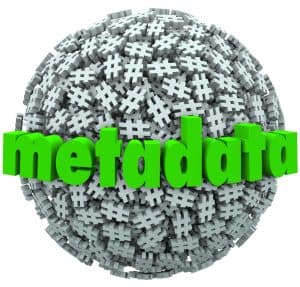
Enterprises often miss out on the wealth of opportunities associated with their content due to the lack of a well-curated metadata strategy.
“Content is king,” said Bill Gates in an essay he wrote in 1996. Enterprise content, whether structured or unstructured, is one of the most important assets of an organization. Though businesses today are trying hard to milk value out of their complex and voluminous content, realizing this in practice is a big challenge due to the emergence of new forms of content such as social media, audio, and video, and the increasing customer demands for contextual engagement.
To tackle this, a holistic content management strategy is a precondition for enterprises. A well-formed content strategy can help enterprises leverage, manage, and harness the information residing in multiple systems. And metadata lies at the core of an ideal content management strategy.
See also: Data Lakes, Time-Series Data, and Industrial Analytics
Decoding metadata
In its simplest form, metadata is the context for information. It is used for describing data and enriching the content with useful information as it helps enterprises discover, use, and manage enterprise-wide content. It enables meaningful content associations and ensures faster access to precise content sprawled across repositories.
Enterprises benefits
Enterprises often miss out on the wealth of opportunities associated with their content due to the lack of a well-curated metadata strategy. A metadata-driven approach to managing content can be a gamechanger for enterprises across industries. By adding context to their content with metadata, enterprises can ensure insightful decisions and drive meaningful engagements with their customers, partners, and other stakeholders.
We can further understand the utility of such an approach and strategy for gaining a competitive advantage through the following:
- Simplify Content Consumption: Context is the life-breath of any form of enterprise content. Leveraging metadata can help enterprises add context to their content-centric processes by helping classify, organize, label, tag, and understand the content. Doing this can significantly help simplify content consumption for users
- Ensure Comprehensive Metadata Services: Enterprises today need metadata services that can be system-generated, user-defined, or intelligently extracted from the content itself. Such a metadata model can help enterprises drive key processes, streamline content lifecycles, and devise business rules and policies
- Secure Critical Information: Managing and securing critical information is essential for enterprises. Metadata can help enterprises secure their data by intelligently extracting critical information from documents and restricting their access based on the metadata value. For instance, in the HR department, only members of the HR team can view employee files; in government offices, only security-cleared employees can read and respond to incoming citizen correspondence
- Enable Process Automation: It is imperative for enterprises to leverage content as an enabler and not an inhibitor while achieving automation of business processes. Metadata can act as a driver for your content-centric enterprise applications by providing context, thereby helping you utilize the content for enabling comprehensive process automation
- Leverage File Analytics: File analytics is one of the most sought-after capabilities for enterprises these days. A well-curated meta-data strategy can help enterprises uncover valuable, hidden insights.
The global enterprise content management market is expected to reach USD 105.56 billion by 2026 and grow at a CAGR of 25.7% over the period 2021-2026. The way forward for enterprises lies in building a content management strategy centered around metadata to extract the highest possible business value.





























